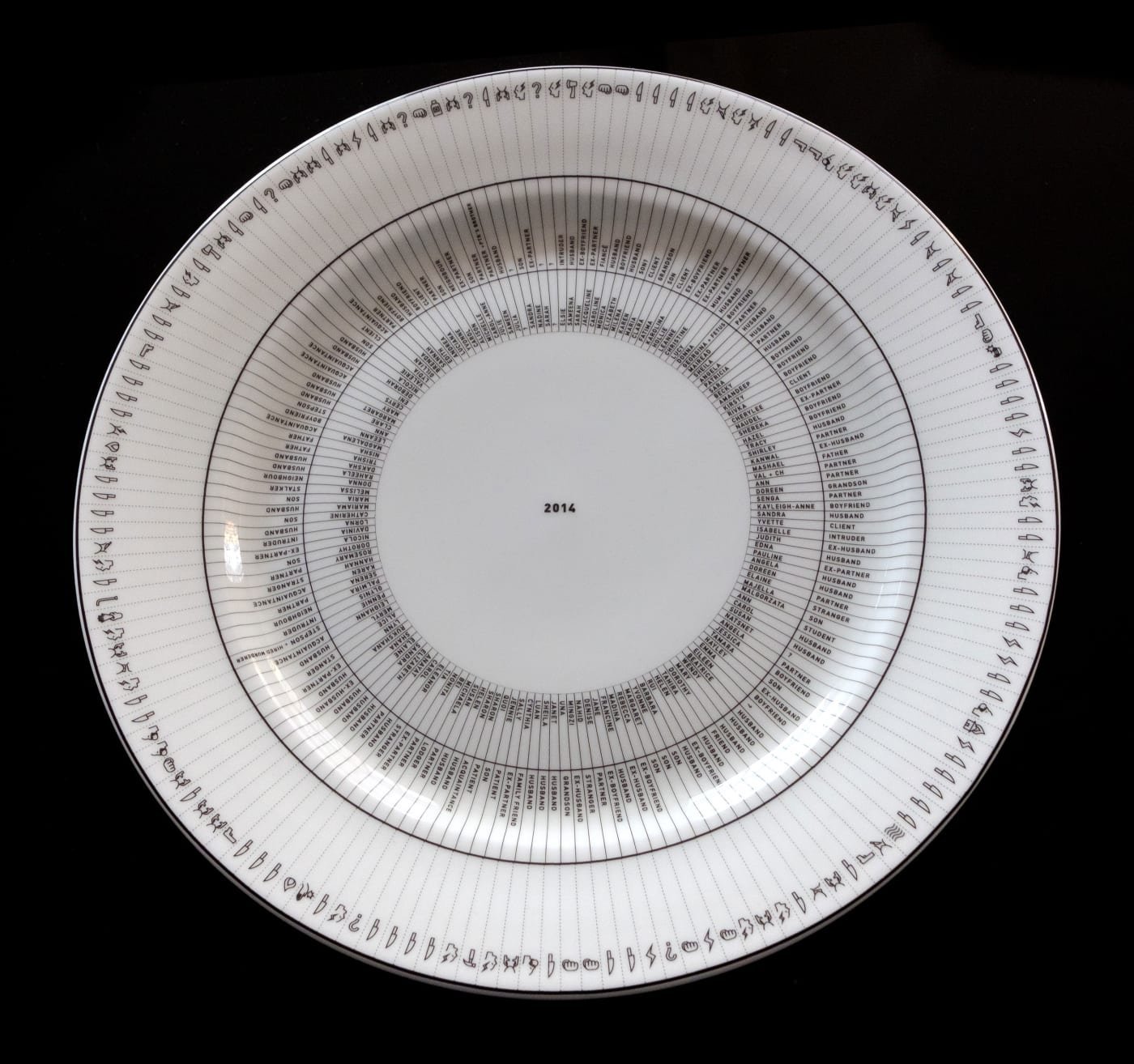WILMA WOOLF IN CONVERSATION WITH ART.FEMINIST
Our art intern Emma K interviewed phenomenal visual artist Wilma Woolf (@wilmaworks) on her conception of feminism, domestic violence in the UK and visual artivism.
Q: What does feminism mean to you?
W: I can’t ever remember living without it.
Explaining that her mother was a feminist in the 1970s, Wilma recounts her earliest memories of protests and marches. She conceives of feminism as a political movement; it is about “fighting the systemic institutional structures that uphold the patriarchy, seeping down to every facet of our selves” (as exemplified by her “Second Opinion” piece on the misogyny underlying medical misdiagnosis). Wilma asserts: “I am proudly feminist. I couldn’t make artwork without feminism, it is my founding principle.”
Wilma’s artistic practice is grounded in her previous work in public policy, human rights and gender equality. Extrapolating from information, data and statics, Wilma creates socially conscious and politically engaged art. Wilma’s “Domestic” art installation achieves precisely this. Haunted by the stark reality that the British government does not record the number of women killed at the hands of male violence each year, Wilma decided to memorialise the femicides committed in the UK for a decade since 2013, using data collected by the Counting Dead Women project.
Domestic consists of eight plates laid on a table. Each plate represents a year of data. It displays the woman’s name, her relationship to her killer and how she died. Wilma designed specific icons to create a visual language capable of conveying the violence experienced by the women and the precise cause of their death without, however, depicting them being hurt. Wilma stresses the importance of remembering those women’s names, especially considering that information on the murder of certain women in society (such as Black women or women from ethnic minorities, sex workers or those who have recently left the foster care system) is harder to find, reflecting the racism and classism permeating British media. The plates are displayed on a black glass table which functions as a mirror. As Wilma explains, “no one can look at the table and not see themselves.” Domestic violence affects everyone.
With this artwork, Wilma aims to debunk insidious myths about domestic violence. First and foremost, she contests the widespread idea that femicide occurs when one man momentarily loses control in a fit of rage. Wilma asserts: “it is actually the final act of control” in which a man strips a woman of her right to life. Wilma also emphasises that there is no category of relation to a man exempt from committing domestic violence and femicide. Indeed, the plates reveal all types of relationships between the perpetrator and his victim, from neighbour to son to grandson. Finally, Wilma wants to challenge the notion that femicide is a fundamental and inevitable part of men and women’s co-existence. She is adamant that a plethora of policy responses could help combat femicide, from mental health support to sustained funding for safe houses. She reiterates the Femicide Census’ conclusion, which highlighted that “there is little suggestion that any intervention over the past ten years has had a significant impact or even any impact at all on the number of women being killed by men.”
Chillingly, Wilma confides that, if nothing changes, she could roughly predict the number of spaces for women’s names to be left on the plates for years to come.
Rooted in “resistance to patriarchy and devotion,” Wilma Woolf’s quietly subversive feminist art installation brings critical awareness to domestic violence as a systemic issue.
Browse her website for more information!
Follow @wilmaworks




